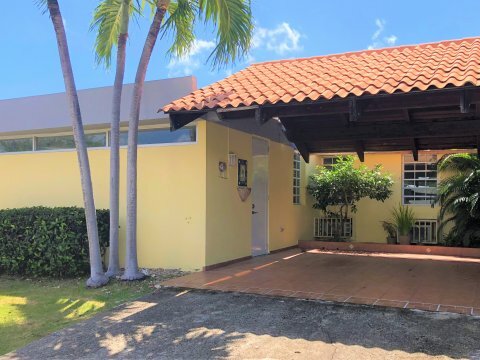Should I Buy a House?
Having your own home is the American Dream. There’s no question that having your own address comes with a plenty of satisfaction and pride. But it also includes many extra costs and routine maintenance. That’s why you need to be completely sure you’re ready to buy a house.
How do you know you’re ready?
Owning a home vs. renting: What’s the Difference?
Choosing to rent or purchase your home is a big decision that affects both your lifestyle and your financial health.
Real estate ownership is proclaimed as an investment that is likely to build equity and a source of tax deductions. Leasing also has its perks, like little to no responsibility and flexibility. However, people generally believe that acquiring a home, rather than renting, is the more fiscally sound decision.
In the US, lots of people lean toward ownership. This is partially because ads hound us with the idea that becoming a homeowner is the key to happiness and a huge part of the American dream.
Real estate is also big business for everybody, from mortgage lenders to real estate agents to home improvement stores. It is a large part of our cultural mindset and economy.
However, it’s necessary to keep in mind that owning a home isn’t always better than renting, and renting is not always as straightforward as it seems. Look at the advantages and disadvantages of each to identify whether owning or renting is best for you.
Renting
Renting means you can move without penalty each time your lease ends. However, it also means you might need to move all of a sudden if your landlord decides to sell the property or convert your apartment complex into condo units. Less drastically, they could just bump up the rental fee to more than you can afford.
The biggest myth about renting is that you’re “throwing away money” every month. This is not true. You need to get a place to live, which always costs money in one way or another. While it’s true that you aren’t building equity with monthly rent payments, not all of the expenses of homeownership will go towards creating equity.
When you rent, you know exactly how much you’re going to pay on housing every month. When you own, you could pay nothing other than your mortgage and typical bills in one month. The next month, you might need to spend an additional $12,000 on a new roof (which your homeowners’ insurance might not include).
While a dripping roof might temporarily inconvenience you as a renter, it’s unlikely you’ll ever have to pay to repair your roof when you rent. Your monthly, home-related expenses, such as renter’s insurance, tend to be more predictable and a lot cheaper.
As a renter, you face unpredictable rent increases each time your lease contract is up for renewal (unless your apartment is rent-controlled). If you stay in a preferable area of town, rent increases may be steep. On the other hand, if you get a fixed-rate mortgage, your monthly house payments will never increase (though property taxes and insurance fees probably will).
While homeownership is often proclaimed as a way to establish wealth, your home can lose value. The acceptable neighborhood you relocated to could diminish. A large-scale company can leave the area, leading to a major population drop and a surplus of housing.
Alternatively, there can be a residential construction boom, which could also keep prices down. You might acquire a house for $200,000 tomorrow and in 30 years find that it’s still worth $200,000, indicating you’ve lost money after inflation.
An additional bit of mistaken conventional wisdom: Get a mortgage to obtain the tax deduction. Yes, the mortgage interest deduction cuts down your out-of-pocket expenses for mortgage interest early on in your loan term, as long as you’re itemizing.
But there is no tax benefit to you as a homeowner if you don’t have sufficient deductions to record and declare the standard deduction. In the event you can itemize, for every $1 you spend in interest, you’ll save pennies on the dollar, an amount that will only lessen over time as you pay down your mortgage.
Needless to say, renters get no mortgage tax deduction at all. They can take the standard deduction that’s offered to all taxpayers.
Do you like having your evenings and weekends to put to use as you please? Do you work long hours or tour regularly? If so, then the time commitment that comes with homeownership might be more than you want to handle.
There are always tasks around a home that you will need or want to handle, from finding a plumber to switching out a rusted-out pipe and repainting the bedroom to mowing the lawn.
If you live in a community with a homeowners association (HOA), the HOA might take some homeownership duties off your plate. That will often cost a couple hundred dollars a month. At the same time, beware of the inconveniences that association membership can involve.
If you rent, your landlord will look after all the repairs and maintenance, though, naturally, they may not be done as quickly or as efficiently as you would want.
Although not as common as homeowners’ insurance, renters’ insurance is often advised for those leasing homes and is considerably required by landlords.
Owning.
Homeownership brings intangible benefits, like a sense of stability, belonging to a community, and honor of ownership. However, it is not practical for restless or nomadic types. Real estate is the original illiquid asset.
You may not be able to sell whenever you want if the housing market is down. Even if it’s up, there are considerable transaction charges when you sell. Changing your mind about where you want to live is even more pricey when you own.
The overall cost of homeownership often tends to be more than the overall cost of renting. That holds true even if the regular mortgage payment is similar to (or lower than) the monthly rent.
Here are some charges you’ll be spending money on as a homeowner that you don’t have to pay as a renter:

Do you have an emergency fund saved?
If you got fired today, could you pay your monthly expenses (like your mortgage and bills) for at least three to six months while trying to find work?
Having 20% or more means you won’t have to pay that pesky PMI (private mortgage insurance), which shields your lender from going bankrupt if you stop paying off your mortgage.
Is purchasing less expensive than renting?
There are various costs that come with purchasing vs. renting, and they rely heavily on where you live and the local housing market. Using Bankrate’s rent vs. purchase calculator can help you break down some of these expenditures.
Most rental properties require a security deposit, for example, which insures the landlord against damage caused by the renter. You’ll often put down the first and final month’s rent payments when you sign a lease contract. When assessing a lease contract, ask if your monthly rent payment includes utility bills such as water, electricity, gas, internet, or cable.
One of the highest expenses of homeownership for homebuyers is your monthly mortgage payment, which includes the loan’s principal and interest. Your payments can go up or down over time if your loan is variable-rate or your real estate taxes or homeowners insurance premiums change.
Having a significant down payment anywhere from 3 percent to 20 percent of the home’s purchase price is expected. If you put lower than 20 percent down, your loan provider will often require you to get private mortgage insurance, or PMI, which drives up your monthly payments, too.
” During the [home-buying] process, the buyer will need to pay for a home inspection and any quotes for repairs required from contractors.
As a homeowner, be prepared for some of the hidden expenses that come with homeownership that catch many new homebuyers off guard and may bring about buyer’s remorse.
Suppose you’re investing in a property in a homeowners association or HOA. In that case, you’ll also have to factor in monthly HOA dues, which can cover services like landscaping, exterior maintenance, and community luxuries.

- Real estate tax.
- Trash pickup.
- Water and sewer service.
- Repairs and maintenance.
- Pest control.
- Tree trimming.
- Homeowners insurance.
- Pool cleaning (if you have one).
- Lender-required flood insurance, in some areas.
- Earthquake insurance, in some areas.
Perhaps the most major throwaway expense is mortgage interest, which can comprise almost all of your monthly payments in the earlier years of a long-term mortgage.
Take this typical scenario: You acquire $100,000 at 4% for 30 years. Your first regular payment will be $477.42, of which $333.33 is your interest payment, and $144.08 is principal.
It will be around 13 years before more of your monthly mortgage payment goes to the principal than toward interest. In sum, you’ll spend $71,869.51 in interest (though, of course, you’ll recoup some of that in tax deductions if you can itemize).
Even renovation jobs don’t often enhance your home’s value by more than what you spend on them. Usually, you’ll get back 66 cents for every single dollar you pay on a home improvement project, according to Remodeling magazine.
The projects that recoup the most are not extravagant things you’ll be thrilled about doing. The best return (and the only one on Remodeling’s list that comes near to getting back its entire price) stems from switching out a garage door.
Once you add up all these costs, you may find that you’re better off financially by renting and putting the money you would have put into a home into a retirement account.
More Real Estate content here.
